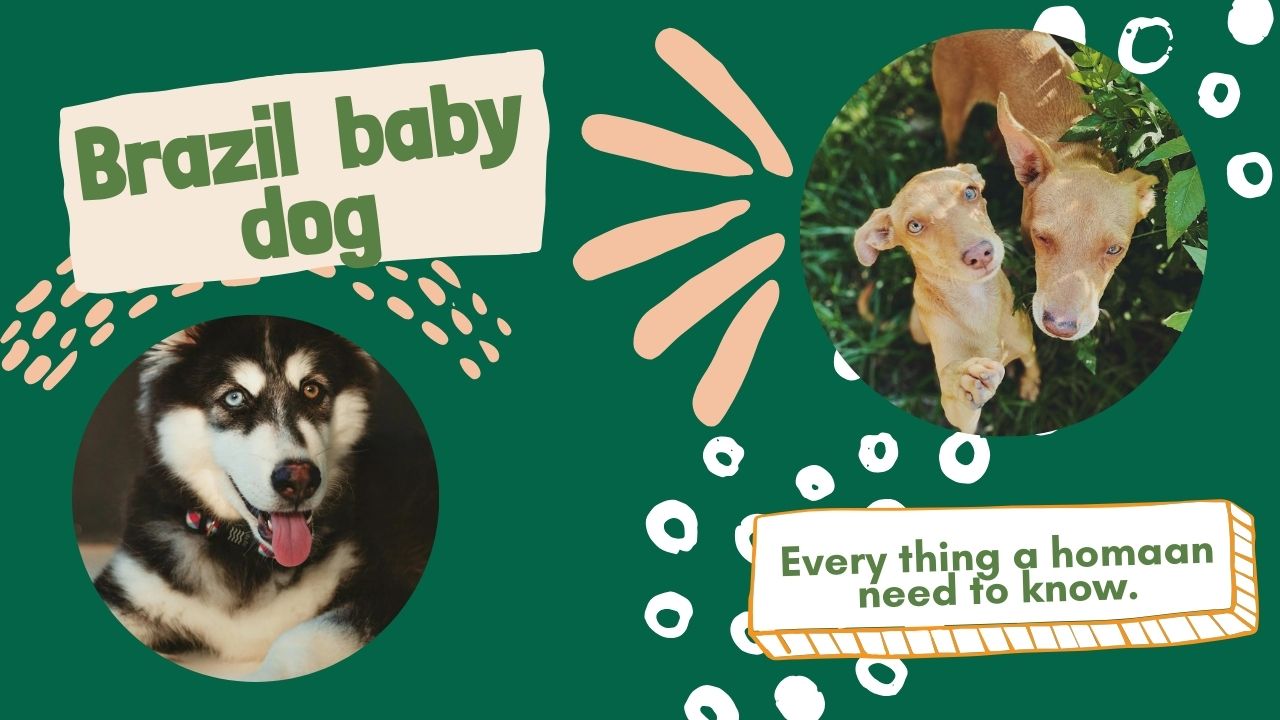Brazil is home to a vibrant population of street dogs, known locally as cães de rua. These dogs are not just strays; they are an integral part of the urban landscape, adapting to their surroundings with remarkable resilience. Many people in Brazil have a deep affection for these animals, often feeding and caring for them despite their wild nature. Street dogs in Brazil come in various shapes and sizes, showcasing a blend of characteristics that reflect their mixed heritage. They embody the spirit of survival, often forming packs that help them navigate the challenges of city life.
List of Dog Breeds Found in Brazil
Brazil boasts a diverse array of dog breeds, each with its own unique traits. Here are some notable breeds commonly found in the country:
- Fila Brasileiro: Known for its loyalty and protective nature, this breed is often used as a guard dog. They are large, muscular dogs with a strong instinct to protect their families.
- Poodle: Available in standard, miniature, and toy sizes, Poodles are intelligent and highly trainable. They are known for their curly coats and friendly demeanor.
- Mastiff: This breed is recognized for its impressive size and strength. Mastiffs are gentle giants that require proper training and socialization.
- Bully Breed: Often misunderstood, Bully breeds are affectionate and loyal companions. They thrive on human interaction and make excellent family pets.
- Labrador Retriever: Friendly and outgoing, Labradors are one of the most popular breeds in Brazil. They are great with children and excel in various roles, including service dogs.
- Shih Tzu: These small dogs are known for their charming personalities and luxurious coats. Shih Tzus make great companions and adapt well to apartment living.
- Beagle: Beagles are curious and energetic dogs with a keen sense of smell. They are friendly and love being part of family activities.
Genetic Background of Brazil’s Street Dogs
The lineage of Brazil’s street dogs can be traced back to ancient domesticated breeds that arrived with early settlers. While there isn’t a single breed that defines Brazilian street dogs, they display characteristics from various dog breeds that have adapted over generations to thrive in urban environments. These dogs typically exhibit physical traits such as medium size, short coats suitable for hot climates, and strong builds that aid in their survival. Behaviorally, they tend to be resourceful scavengers with keen instincts for navigating human-populated areas. Unlike purebred dogs that often have specific traits defined by breeding standards, Brazilian street dogs showcase a rich tapestry of genetic diversity that influences their behavior patterns.
Behavioral Studies of All Breeds of Brazil Street Dogs
Research into the behavior of Brazilian street dogs reveals fascinating insights into their adaptability and intelligence. Studies indicate that these dogs often form complex social structures within their packs, which help them survive in urban settings.Some key findings include:
- Social Structures: Street dogs tend to form packs based on mutual support. These social bonds help them find food and protect each other from dangers.
- Mating Strategies: Observations show that street dogs have unique mating behaviors adapted to their environment, often resulting in higher survival rates for their offspring.
- Survival Tactics: Their ability to scavenge effectively demonstrates remarkable problem-solving skills. They learn from each other and adapt quickly to changes in their surroundings.
These studies highlight how Brazilian street dogs possess an innate intelligence that allows them to thrive despite the challenges they face daily.
What is a Brazil Street Dog Breed?
A Brazilian street dog is not defined by a single breed but rather encompasses a variety of mixed-breed canines that have adapted to life on the streets. These dogs often exhibit a combination of traits from several breeds, making them unique individuals with diverse appearances and personalities.Street dogs are typically resilient survivors who have learned to navigate urban life through scavenging and forming social bonds with other dogs. Their mixed heritage contributes to their adaptability, allowing them to thrive in various environments across Brazil.
Frequently Asked Questions About Street Dogs
- What should I do if I find a stray dog?
- If you find a stray dog, assess its condition first. If it appears healthy but lost, try looking for an owner by checking for tags or posting on local community boards.
- Can I adopt a street dog?
- Absolutely! Many organizations focus on rescuing street dogs and finding them loving homes. Adopting a street dog can be incredibly rewarding.
- Are street dogs dangerous?
- While some may be wary or fearful due to past experiences, many street dogs can be friendly if approached correctly. Always exercise caution when interacting with unfamiliar animals.
- How can I help street dogs?
- You can help by volunteering at local shelters, donating food or supplies, or simply feeding stray dogs you encounter in your neighborhood.
- What health issues do street dogs face?
- Common health problems include parasites (like fleas and ticks), skin infections, dental issues, and malnutrition due to lack of regular food sources.
- Do street dogs get along with other pets?
- It depends on the individual dog’s temperament and socialization experiences. Introducing them slowly can help facilitate positive interactions.
- How long do street dogs typically live?
- The lifespan of street dogs varies widely based on factors like health care access and environmental conditions but generally ranges from 5 to 10 years.
Common Health Problems Faced by Brazil’s Street Dogs
Street dogs in Brazil face numerous health challenges due to their living conditions:
- Parasites: Fleas, ticks, and worms are common among street dogs due to lack of preventive care.
- Infections: Skin infections from injuries or poor hygiene can lead to serious health issues if untreated.
- Malnutrition: Many street dogs struggle with access to regular food sources, leading to malnutrition or starvation.
- Dental Issues: Poor dental hygiene is prevalent among stray populations due to limited access to veterinary care.
Efforts by local animal welfare organizations aim to address these health problems through spaying/neutering programs and vaccination drives.
Legal Framework and Animal Rights for Brazil’s Street Dogs
Brazil has made significant strides in recognizing animal rights over recent years. The country has laws aimed at protecting stray animals from abuse or neglect:
- Animal Protection Laws: Various laws exist at both federal and state levels aimed at protecting animals from cruelty.
- Municipal Programs: Many cities implement programs focused on sterilization campaigns to control the stray population humanely.
- Community Involvement: Local communities often engage in initiatives aimed at caring for stray animals through feeding programs or fostering efforts.
Despite these advancements, challenges remain regarding enforcement and public awareness about animal rights issues.
Conclusion
In conclusion, Brazilian street dogs represent more than just strays; they embody resilience, adaptability, and the spirit of community living among humans. Their stories remind us that every dog has its own journey filled with challenges and triumphs worthy of celebration. By understanding their backgrounds, behaviors, and needs better—alongside advocating for their rights—we can foster a more compassionate society where both humans and animals coexist harmoniously. As we wrap up our exploration into the world of Brazilian street dogs, let’s take action! Consider supporting local shelters or volunteering your time; every little bit helps make a difference in these furry friends’ lives! Together we can create a brighter future for our beloved street dog companions!







